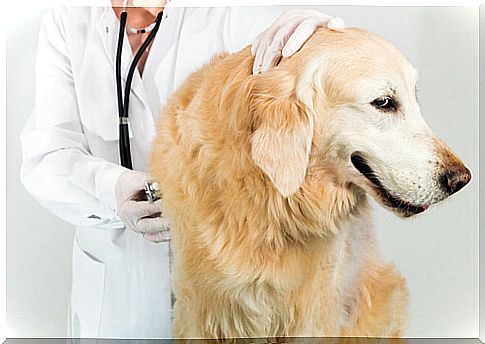Heart Disease In Pets: Should You Worry?

Heart disease in pets is a cause for concern among guardians. Especially when they hear about the term for the first time in a diagnosis. In these cases, the nerves make some of the information not very clear and, therefore, the concern increases.
Let’s imagine the following situation: we just got back from the vet and we are worried because we have heard the word “heart disease” from him. The information that he told us turns our heads and, even without wanting to do so, it sounds worse and worse that our pet has heart disease.
What does the term “heart disease” refer to? It’s bad? Is treatment available? How should we take care of the pet from now on? Below we will answer these and other questions related to heart disease in pets.
What is a heart disease?
A heart disease is nothing more than a heart disease, that is, a heart disease. The word itself gives us some clues:
- Cardio (prefix) → refers to heart.
- -pathy (suffix) → means “disease” or “disease”.

If we review the biology classes at school a little, we can understand the veterinarian a little better when he explains what a heart disease can involve. For now, we should keep in mind the following:
The heart is divided into two atria and two ventricles. These are separated from each other by valves that prevent the backflow of blood when pumped.
Heart disease in pets as a disease
Probably due to the improvement of the tools that clinical veterinarians have, the increase in diagnoses of these diseases has been increasing in recent years.
This means that many times these types of conditions are accidental findings that are discovered in routine check-ups. Therefore, diagnosed animals are completely or almost completely asymptomatic, that is, with latent disease, but without affecting their lifestyle.
In other cases, animals can show some type of symptomatology and seek consultation for this specific problem.
In general, the most common early symptoms in heart disease are:
- Cough
- Shortness of breath
- Exercise intolerance
- Syncope and fainting
There are numerous pathologies that cause heart disease in pets. However, we are going to focus on the most common ones, since they are the ones that suffer most of the animals that are diagnosed as heart disease.
Mitral dysplasia
Mitral dysplasia is the most common congenital heart disease in cats. Although it also occurs very frequently – in an acquired form – in dogs (up to 70% of dogs with heart disease) with a predilection in breeds such as the German Shepherd or the Great Dane.
Specifically, it consists of an alteration of the mitral valve, which separates the left atrium from the left ventricle.
This alteration of the mitral valve causes a dilation of the left ventricle, which has to contract with greater force due to the valve that does not close completely well.

This is often a routine finding, manifesting as a small murmur during cardiac auscultation.
- When the valve closes properly you will hear a plop.
- On the other hand, when it is altered and it closes badly, a ploffff is heard, which corresponds to the blood flowing through it.
In mild cases, most animals do not show any symptoms. On the other hand, in severe cases, depending on the degree of affectation, the symptoms can vary from a slight intolerance to exercise, to dyspnea or cough in more advanced cases.
Treatment is medical (based on pills, as in humans) and tends to give a very good response in most patients, as long as the grade is low and the patient is stable. That is why it is important to go to the vet as soon as we notice a strange symptom in our pet.
Dilated cardiomyopathy
Dilated cardiomyopathy is a very common disease in dogs, although less common in cats. It consists of the dilation of one or both cardiac ventricles. The origin is unknown, although it is suspected that it may be multifactorial.
It should be noted that asymptomatic animals are rare. This heart disease usually manifests itself acutely, causing: cough, fatigue, respiratory distress or even syncope in the most affected animals.
However, in asymptomatic cases, the finding is usually made through imaging studies, such as x-rays or ultrasound, where the abnormally large size of the heart can be seen.
The treatment is also medical. However, on this occasion, the prognosis is reserved and depends on the state of the heart. In mild cases, affected animals can survive for years with a good quality of life. On the contrary, the most unstable and advanced cases have a shorter life expectancy.

Heart disease in pets and COVID-19
Because the existence of heart disease has been established as a major risk factor in people with COVID-19, many owners have wondered if their pet with heart disease could be affected.
There is, for now, no scientific evidence that domestic pets can be infected by coronavirus. Therefore, heart disease in pets is not an associated risk factor, since they do not suffer from this disease.









